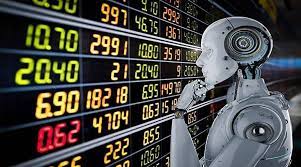The foreign exchange market, also known as forex robot or FX, is the largest and most liquid financial market in the world. It is where currencies are traded, allowing businesses and individuals to buy, sell, and speculate on currencies. In this comprehensive guide, we will explore the basics of forex trading, including its history, how it works, and its key benefits and risks.
History of Forex Trading
Forex trading has a long history that dates back to ancient times when currencies were traded for goods and services. However, the modern forex market as we know it today began to take shape in the 1970s when countries gradually switched to floating exchange rates. This move away from fixed exchange rates laid the foundation for the forex market to become the global financial market it is today.
How Forex Trading Works
Forex trading involves the buying and selling of currency pairs. Each currency pair consists of a base currency and a quote currency. For example, in the EUR/USD pair, the euro is the base currency, and the US dollar is the quote currency. When you buy a currency pair, you are buying the base currency and selling the quote currency. When you sell a currency pair, you are selling the base currency and buying the quote currency.
Key Participants in the Forex Market
The forex market is made up of several key participants, including:
- Banks: Banks are the largest participants in the forex market, accounting for a significant portion of the daily trading volume. They facilitate currency transactions for their clients and for themselves.
- Financial Institutions: Besides banks, financial institutions such as hedge funds, investment firms, and pension funds also participate in the forex market to hedge their exposure to currency fluctuations or to speculate on currency movements.
- Retail Traders: Retail traders are individuals who trade forex through online brokers. They account for a small percentage of the overall trading volume but play an important role in the market.
Benefits of Forex Trading
- Liquidity: The forex market is highly liquid, meaning that you can buy and sell currencies quickly and easily without significantly affecting their prices.
- Accessibility: Forex trading is accessible to anyone with an internet connection and a trading account, making it easier for individuals to participate in the market.
- Leverage: Forex brokers offer leverage, which allows traders to control larger positions with a relatively small amount of capital. However, leverage can amplify both profits and losses, so it should be used with caution.
Risks of Forex Trading
- Market Risk: The forex market is highly volatile, and currency prices can change rapidly in response to economic, political, and other factors, leading to potential losses for traders.
- Leverage Risk: While leverage can amplify profits, it can also amplify losses, potentially leading to significant losses if not managed properly.
- Counterparty Risk: In forex trading, there is a risk that your counterparty, such as a broker or a financial institution, may default on a trade, leading to losses for you.
Conclusion
Forex trading offers an exciting opportunity for individuals to participate in the global financial markets and potentially profit from currency fluctuations. However, it is important to understand the risks involved and to trade responsibly. By educating yourself about the forex market and using sound risk management practices, you can increase your chances of success in forex trading.
